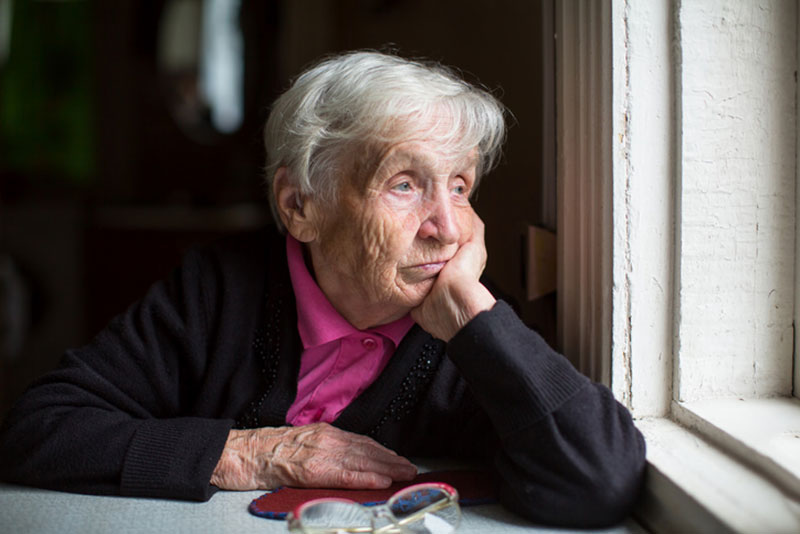
Older loved ones with anhedonia display a lack of interest and pleasure in once loved activities, but there are ways to help get joy back!
Following the hustle and bustle of the holidays, it is not uncommon for the winter doldrums to kick in. Yet what may possibly appear at first to be a touch of boredom could in reality be something much more serious that should be attended to.
Anhedonia, is a loss of interest in activities that someone once enjoyed and is a sign of depression that is commonly missed in older adults. Loved ones with anhedonia may display symptoms such as:
- A decrease in emotional abilities
- A need to self-isolate and avoid social activities and friendships
- Negative feelings directed towards either themselves or other people
It’s always a good idea to talk to a healthcare provider about any signs of depression in an older adult. Effective treatment options are available. In addition, there are things family caregivers can do to help, too.
What Can You Do to Assist Older Loved Ones With Anhedonia?
- Change the diet. Foods that contain serotonin can help boost a person’s mood and counteract depression. Add in more mood-enhancing foods such as spinach, yogurt, fruit, dark chocolate, and whole-grain bread.
- Encourage exercise. Physical activity is another way to enhance mood through the release of feel-good hormones. Bring the grandkids over to play, head to the gym for a class or to go swimming, or simply take a stroll outside together.
- Improve sleep habits. Sleep deprivation and anhedonia can play off one another in a cycle of anxiety, fatigue, and lack of motivation. Create and keep up with a regular sleep schedule, have a light dinner and then shut down the television and electronics, and end the day with calming activities such as working on a puzzle, reading a book, or listening to favorite tunes.
- Get together with friends more often. This one could be difficult, as anhedonia impacts a person’s desire to be around others. Figure out what types of social settings might feel less intimidating to the person: registering for a class, joining a group at their place of worship, regular coffee or lunch dates with a friend or neighbor, etc.
- Point out the positives. Reminiscing can be helpful for a person with anhedonia, enabling the individual to share memories of happier times. Browse videos, photo albums, or scrapbooks together and ask the person to share funny stories from the past. It may help to start a journal of every happy moment that happens each day, in spite of how insignificant they could seem. At the conclusion of each week, look back through the journal together to observe how many positives there actually are in our everyday lives.
It is also smart to encourage professional counseling, providing the opportunity for the individual to consult with a therapist on a routine basis and to learn some coping tools to help. And, always try to be as supportive and empathetic as possible. This can be easier said than done with someone who seems to be unable to break out of negativity, but it’s extremely important to let an older loved one know you are there with them no matter what the mood.
How Can Home Care Help?
An in-home care provider is a great resource for older loved ones with anhedonia. We can provide:
- Transportation to medical appointments or fun outings
- Companionship for engaging activities, enhanced socialization, exercising, and conversations
- Meal planning and preparation, incorporating healthy, serotonin-rich foods
- And much more
Contact Compassionate Nursing Services’ Town and Country memory care experts at 314-432-4312 for more information on how in-home care services can enhance quality of life for someone you love. For a full list of the communities in which we provide care, visit our Service Area page.
